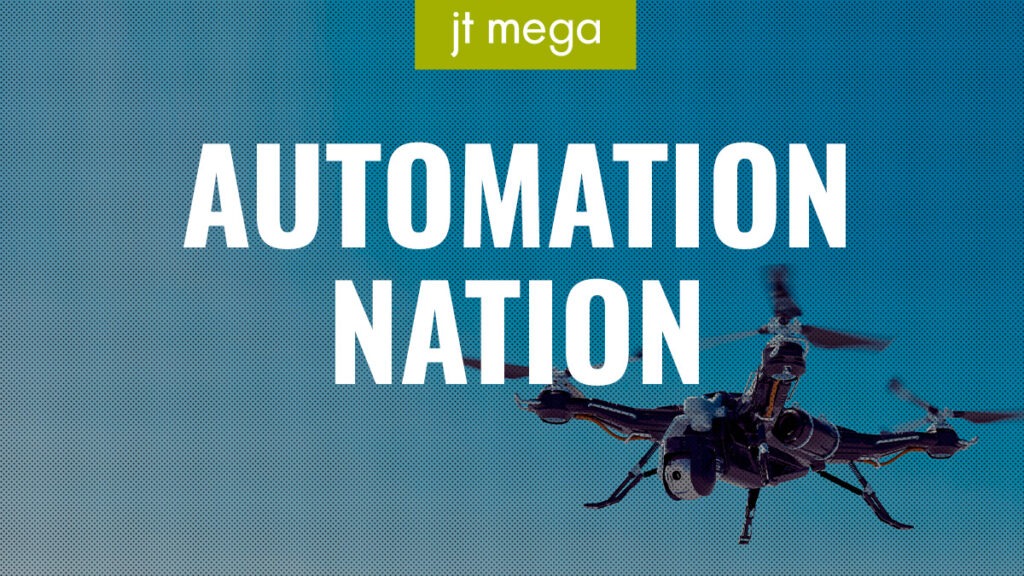In 2017, futurists declared “the era of human-centered design is coming to an end…the next user you design for will be a human-machine hybrid…people and computers can be more effective working in tandem.”[1] Fast forward just 3 years and it appears to have already come true. Analysts are describing the global pandemic as “an overnight plunge…the beginning of a human-machine partnership,”[2] a world where “every interaction has a digital foundation”.[3] Simply put “whatever the new normal looks like after COVID, there is going to be more automation.”[4] Consider these signs:
- Drones. Used in China, France and the U.S. to monitor social distancing and encourage people to “stay at home,”[5] as well as fly coronavirus test samples between hospitals.
- Robot delivery. Across the world, from Tel Aviv to Grand Forks, ND, “hundreds of delivery robots are traveling on roads or in the air, collectively covering thousands of miles.”[6] This includes contact-free meal and grocery deliveries in Fairfax, VA, where a fleet of 43 robots perform 350 deliveries per day on the campus of George Mason University. According to experts, “consumers in major urban markets can expect their next meal being delivered from autonomous vehicle or delivery robot…autonomous vehicles are going to eventually reach very broad adoption.”[7]
- Robot workers. Meet DBot, able to serve diners and disinfect,[8] Flippy, helping with prepared food tasks – like grilling burger patties for Walmart and frying chicken tenders at Dodger Stadium,[9] Sally, who serves customizable salads, bowls and snacks,[10] and Tally who helps retailers identify stocking needs.[11] Also on the scene are dairy farms using robotic feeding and milking systems,[12] grocery retailers employing autonomous floor-scrubbers,[13] Amazon testing virus-killing prototypes,[14] and Mistubishi’s cobot, safe enough to work alongside human counterparts on the assembly line.[15]
- Home bots. Prepare the welcome mat for more than just Roomba® as some 74 million robotic household helpers are expected to be shipped in 2024, an increase of +164% over 2019.[16]
- New Age Vending. Though U.S. vending sales have declined over the years, labor costs and the current health crisis have prompted industries to take a second look. Farmer’s Fridge, maker of healthy vending machines, recently doubled-down on hospitals and other health care facilities to serve more than 30,000 meals per week to workers.[17] Jones Bar-B-Q in Kansas City is currently offering sandwiches and other items through a temperature-controlled vending machine that operates after their 3pm closing time.[18] And “Rice ATMs” have opened 24/7 around Vietnam to dispense free rice to the needy.[19]
- Contact-free transactions. Not only mobile payment, e.g. Walmart Pay, Apple Pay and Google Pay,[20] but mobile payment-enabled unmanned, self-service microstores like Amazon Go and Quick Eats, that use vision technology and AI to track movement of shoppers and goods.
- AI-powered ordering. KFC and McDonald’s are testing AI-powered drive-thru menu boards, while Chipotle is using female voice bots to take phone orders.[21]
Preparing for a more automated food and beverage industry will undoubtedly require further investment, e.g. the machines themselves, reassessing packaging to ensure it holds up at new touchpoints (drone or robotic delivery) rethinking service areas (human vs. machine), and digital ordering and payment systems. We also believe it’s an opportunity to redirect the energy machines free up to our mutually favorite subjects: products, customers and building our brands.
Thinking about investing in robotic technology or vending? Here are links to some of the companies we came across in our discovery:
[1] “The Next User You Design For Won’t Be A Human”, Fast Company, 11/20/17
[2] “Marketing to Machines and Augmented Humans”, Inside the Brand, 4/02/20
[3] “Digital Life IRL”, Datassentials Foodbytes: 2020 Trends
[4] “John Piorkowski, Johns Hopkins University
[5] “Social Distancing Enforcement Drones Arrive in the U.S.”, New York Magazine, 4/08/20
[6] “The Scramble for Delivery Robots is On and Startups Can Barely Keep Up”, WSJ, 4/25/20
[7] “4 restaurant tech predictions for 2020”, Nation’s Restaurant News, 12/10/19
[8] “Macco Robotics New “DBot” Modular Restaurant Robot Delivers Food and Disinfects’, The Spoon, 5/18/20
[9] “Walmart testing robot for prepared food work”, Supermarket Perimeter, 12/12/018
[10] “Chowbotics CEO Rick Wilmer combines robotics with fresh food”, Nation’s Restaurant News, 1/22/20
[11] “How coronavirus could accelerate retailers’ robot deployments”, Modern Retail, 4/15/20
[12] “Robots show value in feed efficiency, reduced labor”, Farm Progress, 4/24/20
[13] “Grocery stores turn to robots during the coronavirus”, CNN, 4/07/20
[14] “60 Minutes shows Amazon’s virus-killing robot: says company uses AI to enforce social distancing”, Geekwire, 5/10/20
[15] “Mitsubishi produces new cobot”, Dairy Reporter, 5/28/20
[16] “74 Million Consumer Robots Expected in 5 Years”, Mediapost, 8/21/19
[17] “How Farmer’s Fridge’s healthy vending machines fuel frontline hospital workers”, Bloomberg, 4/15/20
[18] “Kansas City BBQ offers takeout via vending machine, Kansas City Business Journal, 4/14/20
[19] “Hotspots: April 2020 Top Trends & Observations”, Mintel, 4/29/20
[20] “Publix Goes Contactless”, Progressive Grocer, 4/03/20
[21] “4 restaurant tech predictions for 2020”, Nation’s Restaurant News, 12/10/19 and “Digital Life IRL”, Datassential’s Foodbytes: 2020 Trends
